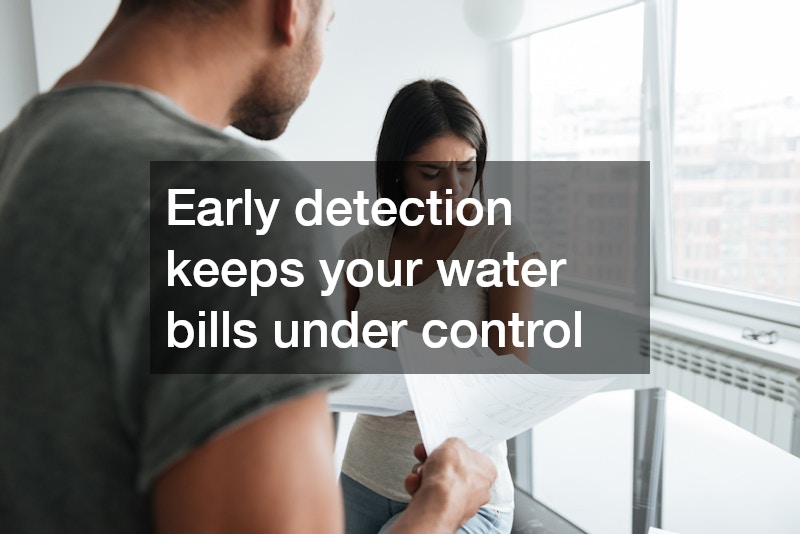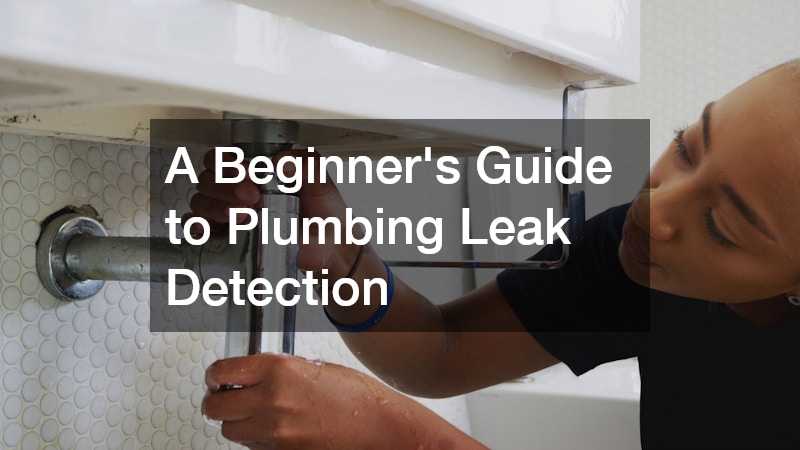Hidden plumbing leaks can quietly damage your home long before you see obvious signs like stains or puddles. Water can seep through walls, floors, and ceilings, driving up your utility bills and weakening the structure of your house. For many homeowners, the hardest part is simply figuring out where the problem is coming from. That is where a professional leak detection service becomes incredibly valuable, helping you locate issues accurately so they can be repaired before they turn into major emergencies.
What Is Plumbing Leak Detection?
Plumbing leak detection is the process of finding the exact source of water loss in your system, whether it is a pinhole in a pipe, a slab leak under the foundation, or a failed fitting behind a wall. Rather than guessing and tearing into random sections of drywall, specialists rely on tools and training to narrow down the location.
A leak detection service may use acoustic listening devices, moisture meters, or thermal imaging cameras to detect subtle changes in sound, temperature, or humidity that point to hidden water.
These methods are designed to be as non-invasive as possible. In many cases, experts can pinpoint a problem with minimal access holes, saving you from unnecessary demolition and repair costs. That means you can fix the actual leak instead of paying to open up large areas in search of it.
Common Signs You Might Have a Hidden Leak
You do not need to be a plumbing expert to suspect that something is wrong. There are simple warning signs that suggest it is time to investigate your pipes more closely. A sudden, unexplained spike in your water bill is often the first clue that water is escaping somewhere you cannot see. You might also hear faint hissing, dripping, or running water sounds when no fixtures are in use.
Visible changes in your home can be just as telling. Look for soft spots on walls or ceilings, peeling paint or wallpaper, musty odors, or floors that feel warm or unusually damp. Mold growth, especially in places that do not typically stay wet, is another red flag. If you notice several of these issues at once, it is worth considering a professional evaluation rather than assuming they will go away on their own.
DIY Checks vs Professional Help
There are basic steps homeowners can take before calling in a pro. You can turn off all water-using appliances and fixtures, then watch your water meter to see if it continues to move. You can also visually inspect exposed pipes under sinks, around water heaters, and in basements or crawl spaces for drips, corrosion, or standing water. These simple checks may reveal obvious leaks you can address quickly.
However, many leaks are buried inside walls, under slabs, or in outdoor lines where you cannot safely or easily investigate on your own. At that point, it makes sense to schedule a leak detection service and let trained technicians use specialized equipment. They can often diagnose the problem faster and more accurately than trial-and-error DIY attempts, which reduces the risk of unnecessary damage and repeated repairs.
What to Expect During a Leak Detection Visit
If you have never hired a specialist before, it helps to know what the process looks like. When you book a leak detection service, the visit usually starts with questions about what you have noticed: sounds, wet spots, bill changes, or recent plumbing work. The technician may then perform a visual inspection and use tools to test different parts of your system, from supply lines and fixtures to irrigation or pool lines if applicable.
Depending on the situation, they may pressurize sections of piping, use listening devices to pick up the sound of escaping water, or scan surfaces with infrared cameras to spot temperature differences. Once the source is identified, the technician will explain where the leak is, how serious it is, and what repair options make the most sense. In some cases, the same company can handle both the detection and the repair; in others, they will provide a detailed report you can share with your plumber or insurance company.
Choosing the Right Leak Detection Provider
Not all providers offer the same experience or tools, so it is worth doing a bit of research before you make a call. Look for a leak detection service that is licensed and insured, and ask how long they have been working with the types of systems your home has. It is perfectly reasonable to ask what methods they use and whether they focus on minimally invasive techniques.
You may also want to ask about pricing structure, whether there is a separate fee for detection and repair, and how they communicate their findings. A clear, written explanation of the problem and recommended next steps can save you confusion later. Online reviews and referrals from neighbors can also help you feel more confident that you are choosing a reliable, professional team.
In the end, plumbing leaks are not something you want to ignore or guess at. Early detection reduces damage, protects your health, and keeps your water bills under control. By learning the basic signs of trouble and understanding how a leak detection service works, you can respond quickly when something seems off. That awareness turns a hidden, stressful problem into a manageable repair and helps you keep your home safe, dry, and comfortable.

